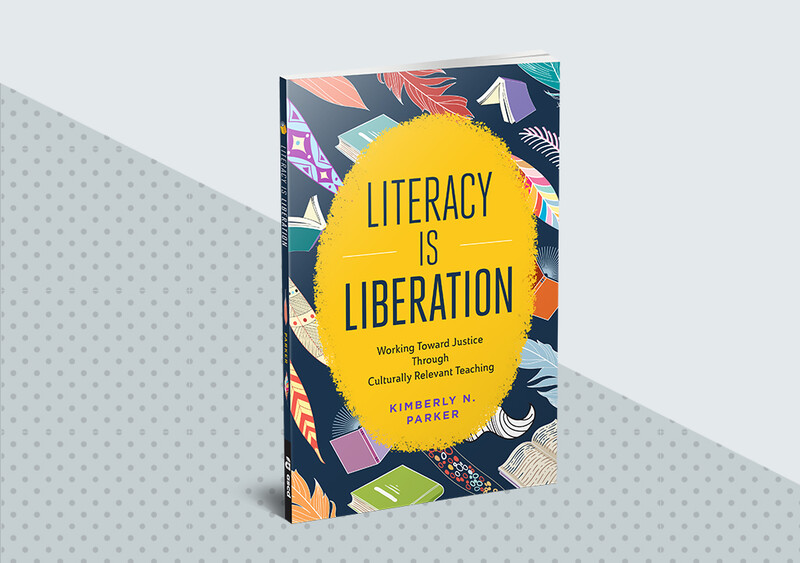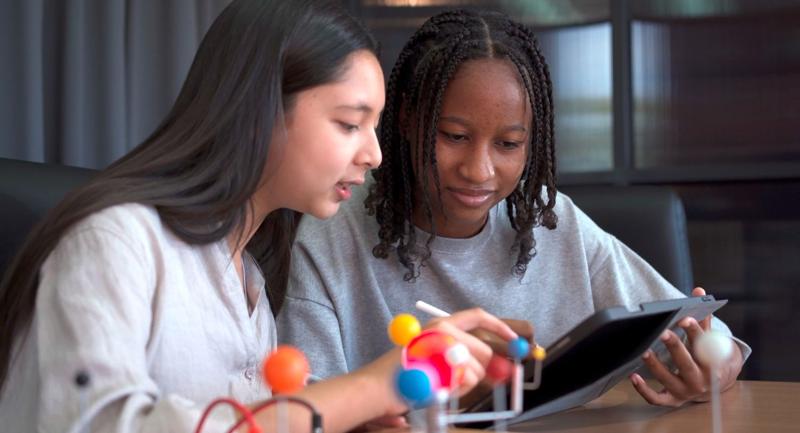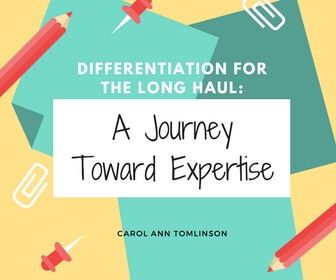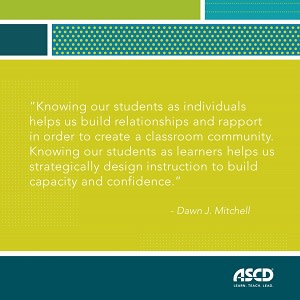For many schools, early spring is the time when we realize that our best-laid plans may not align with our students’ real needs. We may be coming to terms with what high-stakes testing means for our students, our instruction, and ourselves with the loss of instructional time and other end-of-year requirements. We might even be unable to teach texts we’d hoped to try. Our relationships with our students may not be as strong as we wished.
In my book, Literacy Is Liberation: Working Toward Justice Through Culturally Relevant Teaching (ASCD, 2022), I explore the relationship between creating a classroom space that centers students’ needs and ensuring we are normalizing their high achievement in literacy. While this work applies to all students, I intentionally focus on the success of Black, Indigenous, and People of Color (BIPOC), as this has been my career work and the group with whom I’ve experienced sustained success.
We can do this work in our classrooms while simultaneously "managing expectations." Tempering what we can expect is necessary, as schools attempt to emerge from the pandemic. It’s in that spirit that I offer the following five perspectives that can help educators rethink the remainder of the school year, make peace with reality, and work toward helping our students feel a sense of accomplishment in their literacy classrooms. I hope we can extend the same feelings of acceptance to ourselves, too.
1. Reflect and Release
Make peace with what isn’t working. If you’ve been dragging students through the same text for more than three weeks (I know this is happening because my random sample of young people I know have told me so), it’s time to move on. The goal is for our students to gain fluency in their literacy practices. They cannot achieve that goal if slow curricular progress is impeding their success.
We are also still in a pandemic—and the toll has been exacting for our students. Grant them grace if they’ve not met all the expectations we’ve put into the current unit, and look ahead to the next one. We don’t give them a pass; rather, we acknowledge that they are doing the best they can and that we still have time, in the next unit or lesson, to achieve mastery.
In relation to making peace with what isn’t working, it’s always the right time to make sure our practices are not biased and harmful. What are the ways deficit language has crept into our beliefs (i.e., are we labeling students as ones who “won’t” or “can’t” rather than trying to figure out why they might be unable to meet our expectations? What are our disciplinary records telling us?) Are our expectations liberatory or punitive? If they are not liberatory, what must you change today?
2. Recalibrate
To recalibrate our expectations for the remainder of the school year, consider the following questions:
- What do your students need right now?
- What are your students telling you?
- How can you build and sustain a relationship with your students that enables them to be honest about how they are experiencing your class and what they need from you at this exact moment?
- Will they tell you the truth? If they do, what will you do with what they say?
I’d imagine they’d say they need to feel accepted, valued, honored. They need to know that they are not to blame for anything they are feeling, and they need to understand how to work with their emotions. This might mean that we need to explicitly teach emotional regulation skills, as these skills have probably atrophied over the last two years.
3. Reimagine, Don’t Remediate
Don’t look backwards. Look forward. What standards and assessments are coming up? Even if you have testing on the horizon that will consume some time otherwise available for instruction or projects, those dates will pass. Plan around that mandated time to remember that you still have choices about how to spend the rest of the year. How might you respond to what your students are telling you they need and want (choice, culturally relevant materials, project-based learning, etc.) and center those needs with your curriculum planning?
Also, push yourself to keep moving students dynamically through the curriculum (which is why prioritizing what is most important is critical here) rather than insisting students “review, review, review.” If you need to do some focused instruction (e.g., mini-lessons, reinforcement of a particular concept), take time to build that into the work you are doing with students as you move ahead. Target the students who might need additional help, but avoid having an entire group of students do work they already know and can do.
Thus, it’s important to make sure you know where students are academically—and have data that indicates their progress—rather than go on hunches or what the broader society is trying to tell us about our students. Our students, especially our BIPOC students, can often do much more challenging work than we put in front of them, and they deserve to do that work. Give it to them and support them as they master the material.
4. Prioritize the Most Important Rituals and Routines
Consider what you want students to know and be able to do in the remaining months of the school year, and how you can reinforce and recreate a community that centers your students. I want all children to have positive literacy experiences and to be deeply connected to a reading life that is their own. Even if you’ve not considered implementing an independent reading routine in your classroom, or if you’ve tried it and it hasn’t gone well, try again.
If every student in your class reads one book a week that they choose and love, starting today, think about the reading momentum they’ll have leading into the summer! Also, think about what routine or ritual would lift your students. Might it be a type of celebration? The time is right to create a special moment that centers literacy, joy, and delight.
5. Decide and Do
In one of his newsletters, author Saeed Jones reminds us, “What you are doing now is who you are . . . consider who you want to be when the morning light finds you.” As literacy educators, we need to always think about the power of literature to reflect and extend our students’ experiences.
The current political moment of book banning should be causing us to think deeply about access and our role in ensuring students are able to read what they want, especially books by BIPOC authors and illustrators. Familiarize yourself and your students with how to handle challenges to books and think about what you will do to stand up for your students’ rights to read. Don’t be a literacy barrier or gatekeeper. Our students need us to be brave.
Powering Ahead
The school year isn’t over. As much as we can, we need to view the few months that remain as ones that are ripe with possibilities: of connecting our students to powerful literacy experiences; of clearing out what isn’t working and trying something new; of centering what our students need right now—and doing only that. The opportunity for transformative instruction is within our reach. May we keep going—with our students—as we realize the liberatory potential that remains.
Literacy Is Liberation
Literacy is the foundation for all learning and must be accessible to all students, writes Kim Parker. In her new book, Parker gives teachers the tools to build culturally relevant intentional literacy communities with students.









